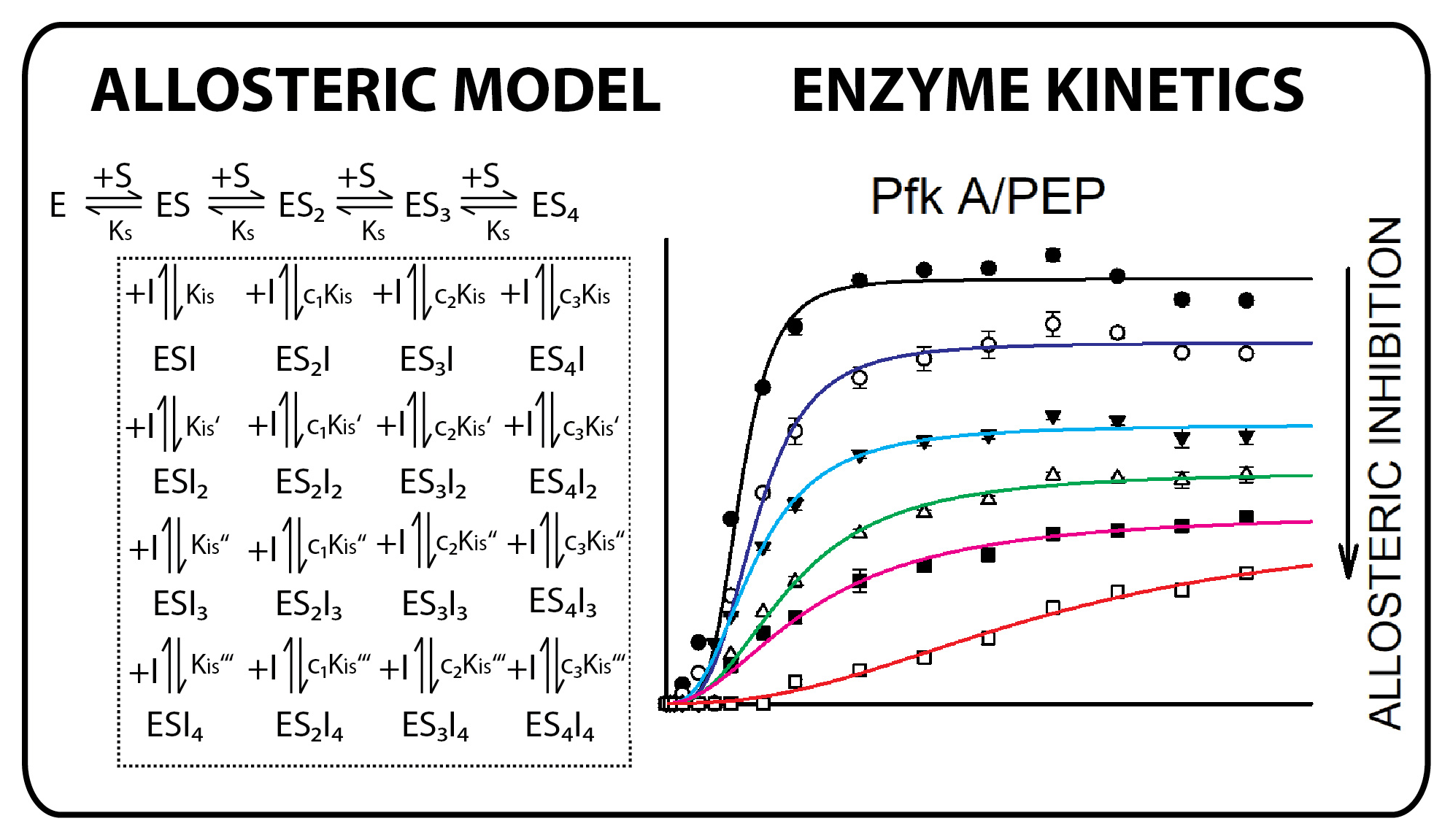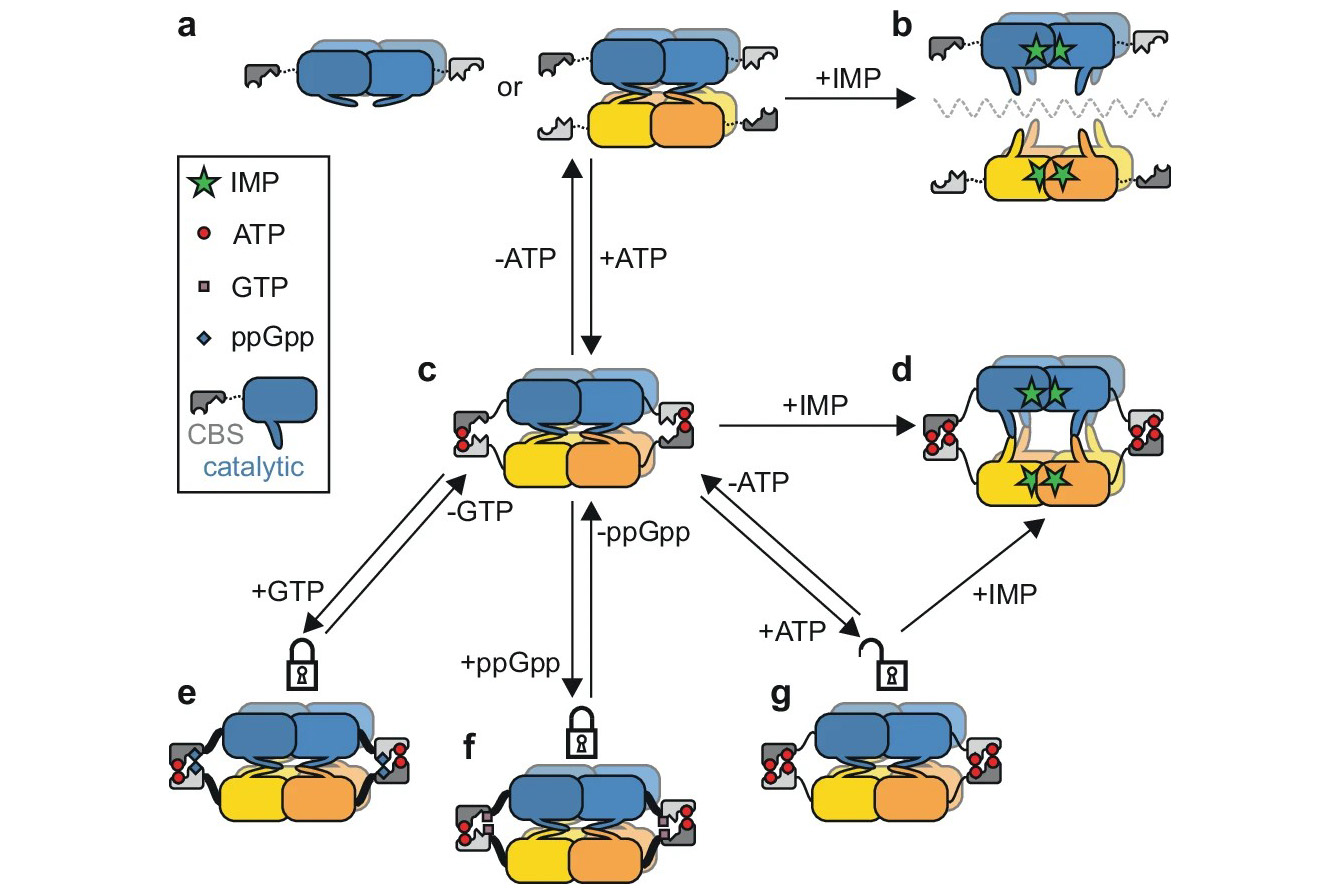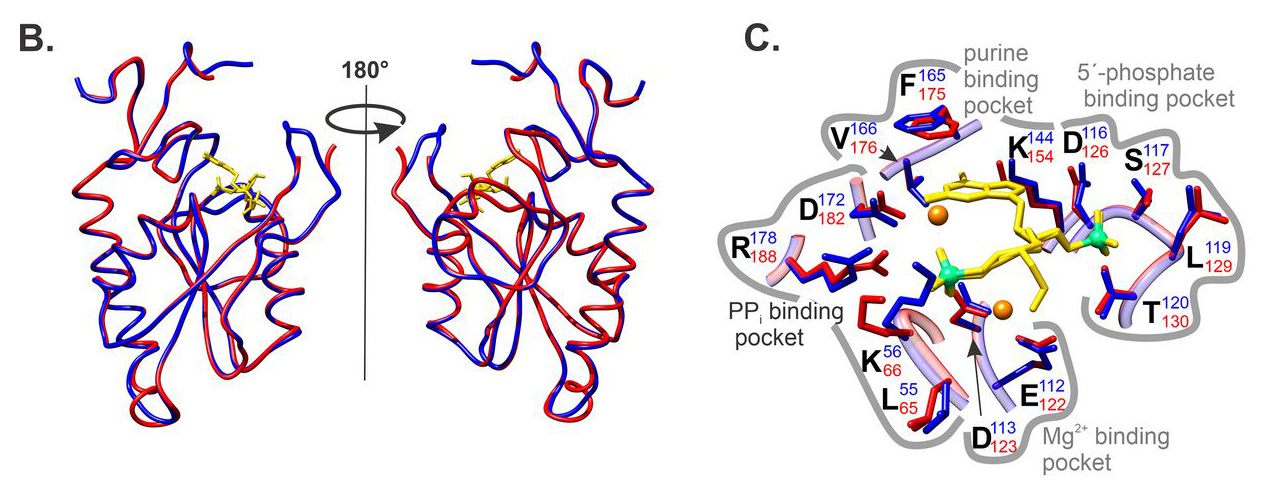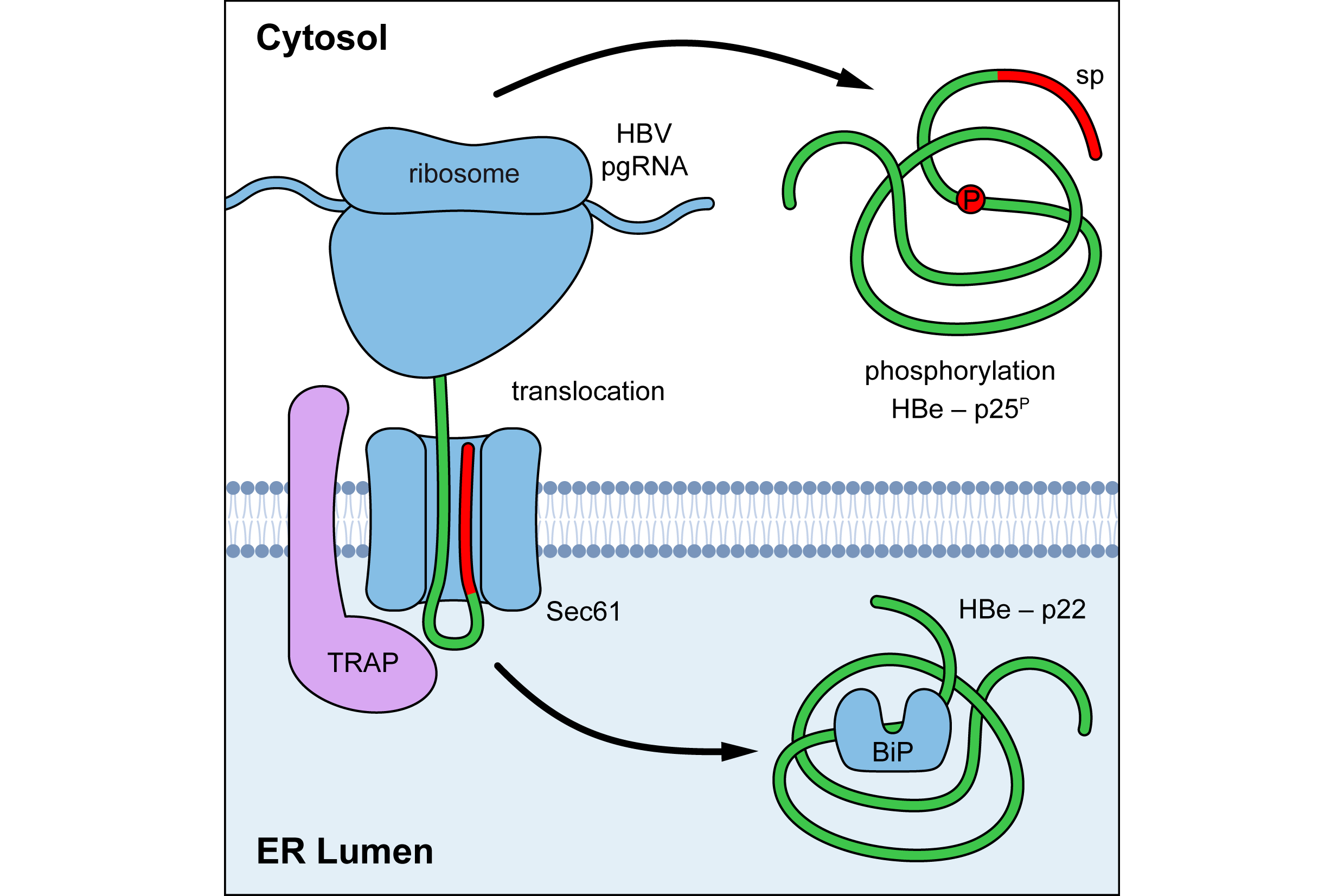
Mycobacterium tuberculosis (Mtb) causes a highly infectious disease in humans. The bacteria have a very flexible and adaptable metabolism, which allows for entering a dormancy state. Glucose, as one of the carbon sources, can generate fundamental metabolites through the process called glycolysis – an ancient mechanism conserved in a wide range of organisms. In this pathway, the enzyme phosphofructokinase (Pfk) catalyzes a key regulatory transformation.
The multidisciplinary team led by Iva Pichová from IOCB Prague has studied the properties of two Pfk isoenzymes (Pfk A and Pfk B) encoded by Mtb to better understand the Pfk A and PfkB role in glycolysis regulation. The scientists have demonstrated that Pfk A can be easily inhibited by substrates and products of the glycolytic reaction it catalyzes and common metabolites. Curiously, the Pfk B is also able to catalyze the same reaction, but in addition, the enzyme remains functional under conditions inhibiting Pfk A. Besides, the Pfk B can catalyze the reverse gluconeogenic reaction.
The results of the enzymatic characterization published in the International Journal of Molecular Sciences can help to better understand Mtb metabolic changes during latent tuberculosis and to design new drugs targeting Mtb in the non-replicative state of dormancy.
Read the paper:
- Snášel, J.; Machová, I.; Šolínová, V.; Kašička, V.; Krečmerová, M.; Pichová, I. Phosphofructokinases A and B from Mycobacterium tuberculosis Display Different Catalytic Properties and Allosteric Regulation. International Journal of Molecular Sciences 2021, 22. https://doi.org/10.3390/ijms22031483






